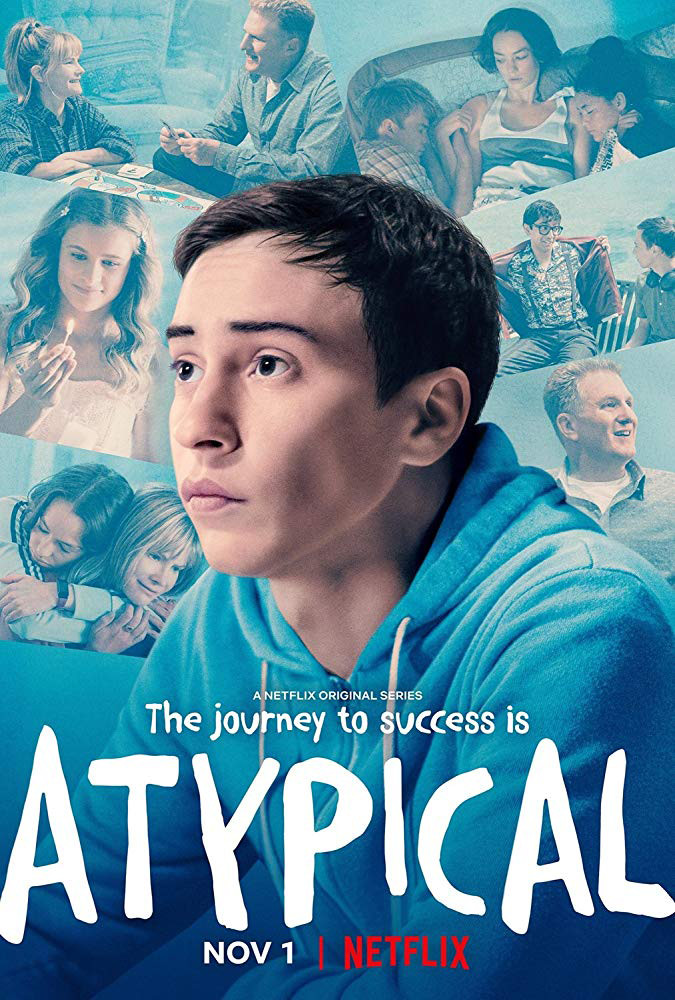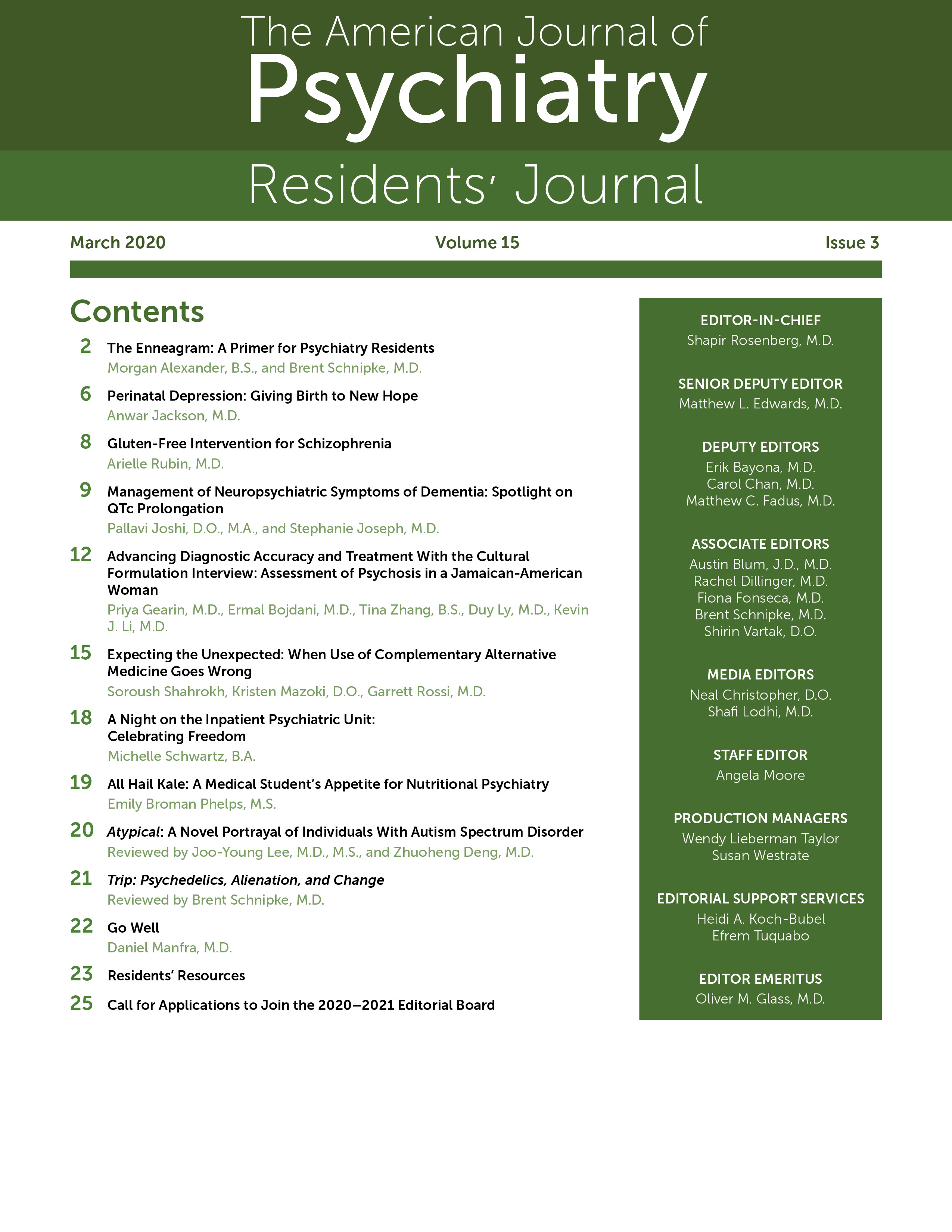Atypical is a Netflix-based comedy series about an 18-year-old American high school student with autism spectrum disorder (ASD), a neurodevelopmental syndrome characterized by restricted, repetitive behaviors and impairments in social communication (
1). Over the past three decades, a growing number of television shows have depicted individuals with ASD, with varying degrees of accuracy. Generally, these shows have propagated false beliefs and stereotypes about ASD and have failed to capture the rich range of phenotypes across the spectrum (
2). Among the false beliefs and stereotypes are the overgeneralization that individuals with ASD are experts in science and the misconception that ASD is a reversible condition. This article reviews the narrative of
Atypical, how it reflects current science on ASD, and its limitations.
Atypical lends itself to a review because it more accurately captures the diversity and experience of individuals with ASD. First, Atypical depicts the chronic clinical trajectory of ASD through Sam's recurring anxiety attacks in the context of his sister's transfer to another school, sensory overload, and rejection by his peers. Second, unlike characters with ASD who are usually portrayed as having an interest in areas related to math or science, Sam enjoys his creative activity—illustration. This self-soothing ritual, repeatedly utilized to cope with his anxiety, evolves into a masterful skill. Third, Atypical stresses that individuals with ASD may yearn for relationships. Sam's obsession with Antarctic penguins is portrayed as an imaginary respite from the stresses of social interaction, rather than as his social indifference. Sam vents these stresses and frustrations in his weekly psychotherapy sessions, where he also learns how to read between the lines and use white lies. Finally, Atypical shows that patients with ASD may attain a high level of independence, even without caregivers' possible overprotection. This can potentially be achieved when patients utilize psychosocial resources, such as a specialist-led group. For instance, Sam discovers his strength in illustration and receives both emotional and practical support during his college application process within such a group. This auxiliary support enables Sam's parents and sister to offload some of their caregiver burden and to instead focus on their relationship- and career-related issues.
Atypical has its limitations. It received negative feedback from the autism community about a neurotypical actor playing Sam and the lack of actors with ASD (
3). There is also concern that comical scenes in
Atypical might make its viewers laugh at rather than with Sam (
4). Furthermore, because Sam is depicted as relatively high functioning, neither taking psychotropic medications nor having common comorbidities, such as seizure disorders (
5), he inadequately represents all real-world individuals with ASD. The joys and sorrows
Atypical intends to convey might not resonate with patients on the more severe end of the spectrum.
Despite these limitations, Atypical is noteworthy because it endeavors to convey more thoughtful representations of individuals with ASD by incorporating voices from the autism community and bringing additional actors, consultants, and a playwright with ASD into the production. The authors look forward to Atypical's third season, hoping to witness the nuances of Sam's emotional maturation as he adjusts to the social norms at college.

